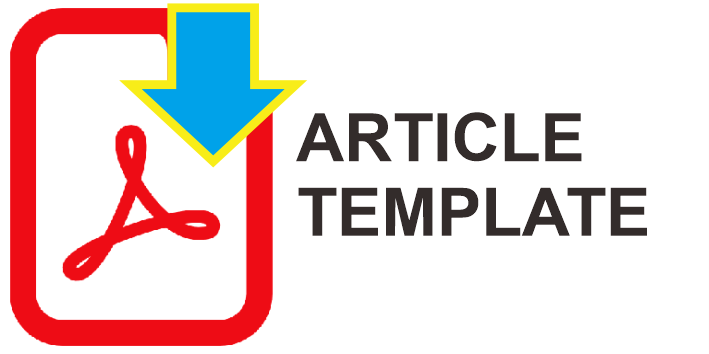Analisis Persepsi Pegawai terhadap Deteksi Occupational Fraud Melalui New Fraud Star Theory (Studi Kasus pada PT XYZ)
Putu Nadiani Putri Utama(1*), Dian Kartika Rahajeng(2)
(1) Universitas Gadjah Mada
(2) Departemen Akuntansi, fakultas Ekonomika dan Bisnis, Universitas Gadjah Mada, Yogyakarta
(*) Corresponding Author
Abstract
Tujuan – Tujuan penelitian ini adalah untuk menguji faktor – faktor yang melandasi terjadinya occupational fraud serta menganalisis upaya pencegahan yang tepat dan belum terdapat dalam sistem pengendalian internal perusahaan terhadap occupational fraud menurut pegawai.Metode Penelitian – Penelitian ini menggunakan metode penelitian mix method. Pada fase pertama menggunakan metode kuantitatif dengan menyebarkan kuesioner kemudian dilakukan analisis menggunakan regresi liner berganda. Selanjutnya pada fase kedua, dilakukan wawancara untuk memperdalam hasil hipotesis yang didapatkan dari fase kuantitatif.Temuan – Temuan dari penelitian menyimpulkan bahwa hanya variabel peluang, rasionalisasi dan budaya organisasi yang berpengaruh signifikan terhadap tindakan occupational fraud, sedangkan variabel tekanan, kemampuan, lingkup eksternal dan lingkup internal tidak berpengaruh signifikan terhadap occupational fraud. Hipotesis ini diperdalam dengan adanya wawancara yang dilakukan sehingga menemukan bahwa hanya hasil hipotesis variabel lingkup eksternal dan lingkup internal yang tidak terdukung. Sedangkan beberapa upaya dapat dilakukan untuk menurunkan peningkatan occupational fraud seperti dengan meningkatkan pengawasan yang dilakukan oleh manajemen dan satuan pengawas internal, meningkatkan jumlah SDM auditor, meningkatkan kemampuan auditor hingga penerapan whistleblowing incentive.Orisinalitas – Penelitian menguji teori fraud terbaru yaitu New Fraud Star Theory dengan objek penelitian berupa perusahaan keuangan di Indonesia. Selain itu, menganalisis upaya terbaru yang sebaiknya perusahaan dalam bidang tersebut dapat lakukan untuk menurunkan resiko fraud pada perusahaan. Kata Kunci: Occupational Fraud, Upaya Penanganan Fraud, Fraud Theory
Full Text:
PDFReferences
Abdullahi, R., & Mansor, N. (2015). Fraud Triangle Theory and Fraud Diamond Theory. Understanding the Convergent and Divergent For Future Research. International Journal of Academic Research in Accounting, Finance and Management Sciences, 5. https://doi.org/10.6007/IJARAFMS/v5-i4/1823
Abdullahi, R., & Mansor, N. (2018). Fraud prevention initiatives in the Nigerian public sector: Understanding the relationship of fraud incidences and the elements of fraud triangle theory. Journal of Financial Crime, 25(2), 527–544. https://doi.org/10.1108/JFC-02-2015-0008 Albrecht, W. S.,
Albrecht, C. O., Albrecht, C. C., & Zimbelman, M. F. (2018). Fraud Examination. Cengage Learning. Alleyne, P., Hudaib, M., & Pike, R. (2013). Towards a conceptual model of whistle-blowing intentions among external auditors. The British Accounting Review, 45, 10–23. https://doi.org/10.1016/j.bar.2012.12.003
Alutu, O., & Udhawuve, M. (2009). Unethical Practices in Nigerian Engineering Industries: Complications for Project Management. Journal of Management in Engineering - J MANAGE ENG, 25. https://doi.org/10.1061/(ASCE)0742-597X(2009)25:1(40)
Anindya, J. R., & Adhariani, D. (2019). Fraud risk factors and tendency to commit fraud: analysis of employees’ perceptions. International Journal of Ethics and Systems, 35(4), 545–557. https://doi.org/10.1108/IJOES-03-2019-0057
Arkorful, V. E., Lugu, B. K., Arkorful, V. A., & Charway, S. M. (2022). Probing the Predictors of Fraud Using the Fraud Diamond Theory: An Empirical Evidence from Local Governments in Ghana. Forum for Development Studies, 49(2), 291–318. https://doi.org/10.1080/08039410.2022.2080759
Asmah, A. E., Atuilik, W. A., & Ofori, D. (2019). Antecedents and consequences of staff-related fraud in the Ghanaian banking industry. Journal of Financial Crime, 26(3), 669–682. https://doi.org/10.1108/JFC-08-2018-0083
Avortri, C., & Agbanyo, R. (2021). Determinants of management fraud in the banking sector of Ghana: the perspective of the diamond fraud theory. Journal of Financial Crime, 28(1), 142–155. https://doi.org/10.1108/JFC-06-2020-0102
Beaulieu, P., & Reinstein, A. (2020). Connecting organizational culture to fraud: Buffer/ conduit theory. In Advances in Accounting Behavioral Research (Vol. 23, pp. 21–45). Emerald Group Publishing Ltd. https://doi.org/10.1108/S1475-148820200000023002
Brown, T. (2014). Advantageous Comparison and Rationalization of Earnings Management. Journal of Accounting Research, 52. https://doi.org/10.1111/1475-679X.12054
Cheliatsidou, A., Sariannidis, N., Garefalakis, A., Azibi, J., & Kagias, P. (2021). The international fraud triangle. Journal of Money Laundering Control. https://doi.org/10.1108/JMLC-09-2021-0103
Cressey, D. R. (1950). The Criminal Violation of Financial Trust. American Sociological Review, 15, 738.
Dorminey, J., A.S., F., M.-J, K., & R.A., R. (2010). Beyond the fraud triangle: Enhancing deterrence of economic crimes. The CPA Journal, 17–23.
Dorminey, J., Scott Fleming, A., Kranacher, M. J., & Riley, R. A. (2012). The evolution of fraud theory. Issues in Accounting Education, 27(2), 555–579. https://doi.org/10.2308/iace-50131
Hofstede, G. (2001). Culture’s Consequences: Comparing Values, Behaviors, Institutions and Organizations Across Nations. In Behaviour Research and Therapy - BEHAV RES THER (Vol. 41). https://doi.org/10.1016/S0005-7967(02)00184-5
Jamaliah, S., Salsabila, A., Rafidi, M., Obaid, R., & Alam, Md. M. (2018). Integrating Religiosity into Fraud Triangle Theory: Empirical Findings from Enforcement Officers. Global Journal Al-Thaqafah, 8, 131–143. https://doi.org/10.7187/GJATSI2018-09 Kalovya, O. Z. (2020).
Determinants of occupational fraud losses: offenders, victims and insights from fraud theory. Journal of Financial Crime. https://doi.org/10.1108/JFC-10-2019-0136
Kartini. (2018). Developing fraud prevention model in regional public hospital in West Sulawesi Province. International Journal of Law and Management, 60(2), 210–220. https://doi.org/10.1108/IJLMA-04-2017-0095
Kassem, R., & Higson, A. (2012). The New Fraud Triangle Model. Journal of Emerging Trends in Economics and Management Studies, 3.
Krambia-Kapardis, M., & Zopiatis, A. (2010). Investigating incidents of fraud in small economies: The case for Cyprus. Journal of Financial Crime, 17(2), 195–209. https://doi.org/10.1108/13590791011033890
Kumar, K., Bhattacharya, S., & Hicks, R. (2018). Employee perceptions of organization culture with respect to fraud – where to look and what to look for. Pacific Accounting Review, 30(2), 187–198. https://doi.org/10.1108/PAR-05-2017-0033
Maulidi, A. (2020). Critiques and further directions for fraud studies: Reconstructing misconceptions about developing fraud theories. In Journal of Financial Crime (Vol. 27, Issue 2, pp. 323–335). Emerald Group Holdings Ltd. https://doi.org/10.1108/JFC-07-2019-0100
Maulidi, A. (2022). Philosophical understanding of the dynamics and control of occupational fraud in the public sector: contingency analysis. International Journal of Ethics and Systems. https://doi.org/10.1108/ijoes-04-2022-0078
McLachlan (Bather), A., & Kelly, M. (2006). A Dialectic Analysis of the Whistleblowing Phenomenon. Australian Accounting Review, 16. https://doi.org/10.1111/j.1835-2561.2006.tb00326.x Monteverde, V. H. (2021). New fraud star theory and behavioural sciences. Journal of Financial Crime. https://doi.org/10.1108/JFC-06-2020-0114
Mui, G., & Mailley, J. (2015). A tale of two triangles: Comparing the fraud triangle with criminology’s crime triangle. Accounting Research Journal, 28(1), 45–58. https://doi.org/10.1108/ARJ-10-2014-0092
Near, J., & Miceli, M. (1985). Organizational Dissidence: The Case of Whistle-Blowing. Journal of Business Ethics, 4. https://doi.org/10.1007/BF00382668
Needle, D. B. (2010). Business In Context: An Introduction To Business And Its Environment. Neu, D., Everett, J., & Rahaman, A. (2013). Internal Auditing and Corruption within Government: The Case of the Canadian Sponsorship Program. Contemporary Accounting Research, 30. https://doi.org/10.1111/j.1911-3846.2012.01195.x
Omukaga, K. O. (2020). Is the fraud diamond perspective valid in Kenya? Journal of Financial Crime, 28(3), 810–840. https://doi.org/10.1108/JFC-11-2019-0141
Orsaa, D., & Adebisi, J. (2013). The new fraud diamond model - how can it help forensic accountants in fraud investigation in Nigeria? Eur. J. Account. Audit. Finance Res., 1, 129–138.
Owusu, G. M. Y., Koomson, T. A. A., Alipoe, S. A., & Kani, Y. A. (2022). Examining the predictors of fraud in state-owned enterprises: an application of the fraud triangle theory. Journal of Money Laundering Control, 25(2), 427–444. https://doi.org/10.1108/JMLC-05-2021-0053
Ratmono, D., & Frendy. (2022a). Examining the fraud diamond theory through ethical culture variables: A study of regional development banks in Indonesia. Cogent Business and Management, 9(1). https://doi.org/10.1080/23311975.2022.2117161
Sahla, W. A., & Ardianto, A. (2022). Ethical values and auditors fraud tendency perception: testing of fraud pentagon theory. Journal of Financial Crime. https://doi.org/10.1108/JFC-04-2022-0086
Said, J., Alam, M. M., Karim, Z. A., & Johari, R. J. (2018). Integrating religiosity into fraud triangle theory: findings on Malaysian police officers. Journal of Criminological Research, Policy and Practice, 4(2), 111–123. https://doi.org/10.1108/JCRPP-09-2017-0027
Said, J., Alam, Md. M., Ramli, M., & Rafidi, M. (2017a). Integrating Ethical Values into Fraud Triangle Theory in Assessing Employee Fraud: Evidence from the Malaysian Banking Industry. Journal of International Studies, 10, 170–184. https://doi.org/10.14254/2071-8330.2017/10-2/13
Said, J., Omar, N., Rafidi, M., & Syed Yusof, S. N. (2018). Are organizational factors more prevailing than individual factors in mitigating employee fraud?: Findings from Royal Custom Officers. Journal of Financial Crime, 25(3), 907–922. https://doi.org/10.1108/JFC-09-2017-0087
Sarikhani, M., & Ebrahimi, F. (2021). Whistleblowing by accountants: an integration of the fraud pentagon and the extended theory of planned behavior. Meditari Accountancy Research. https://doi.org/10.1108/MEDAR-10-2020-1047 Soerjono Soekanto. (1999). Pengantar penelitian hukum. Universitas Indonesia Press.
Syukur, M., Fitri, F., & Justisa, G. (2019). Do The Fraud Triangle Components Motivate Fraud In Indonesia? 13, 63–72. https://doi.org/10.14453/aabfj.v13i4.5
Turner, J., Mock, T., & Srivastava, R. (2003). An Analysis of the Fraud Triangle.
Van den Berg, P., & Wilderom, C. (2004). Defining, Measuring, and Comparing Organisational Cultures. Applied Psychology, 53, 570–582. https://doi.org/10.1111/j.1464-0597.2004.00189.x
Vaughan, D. (1999). THE DARK SIDE OF ORGANIZATIONS: Mistake, Misconduct, and Disaster. Review of Sociology, 25, 271–305. Ventura, M., & Daniel, S. J. (2010). Opportunities for Fraud and Embezzlement in Religious Organizations: An Exploratory Study Charitable giving in the. In Journal of Forensic & Investigative Accounting (Vol. 2, Issue 1).
Vousinas, G. L. (2016). Elaborating on the theory of fraud. New theoretical extensions. https://ssrn.com/abstract=3163337
Wang, Y., Ashton, J., & Jaafar, A. (2019). Money shouts! How effective are punishments for accounting fraud? The British Accounting Review, 51. https://doi.org/10.1016/j.bar.2019.02.006
Wicaksono, A. P., & Urumsah, D. (2017). Factors Influencing Employees To Commit Fraud In Workplace Empirical Study In Indonesia Hospitals. Asia Pacific Fraud Journal, 1(1), 1. https://doi.org/10.21532/apfj.001.16.01.01.01
Wolfe, D., & Hermanson, D. (2004). The Fraud Diamond: Considering the Four Elements of Fraud. The CPA Journal, 74, 38–42.
Article Metrics
Refbacks
- There are currently no refbacks.
This work is licensed under a Creative Commons Attribution 4.0 International License.
______________________________________________________________________________________________________
2302 - 1500


_logo2.png)





